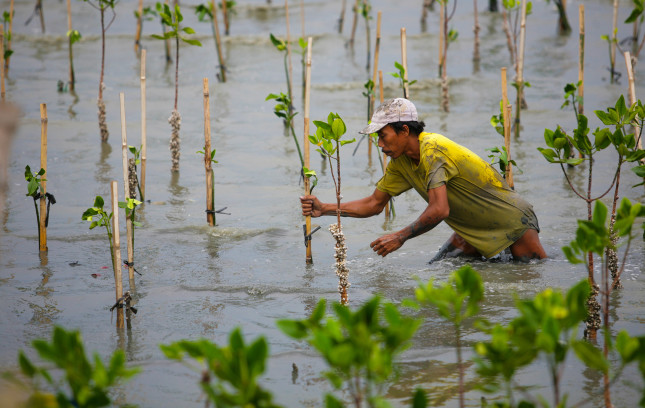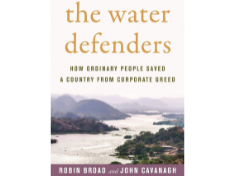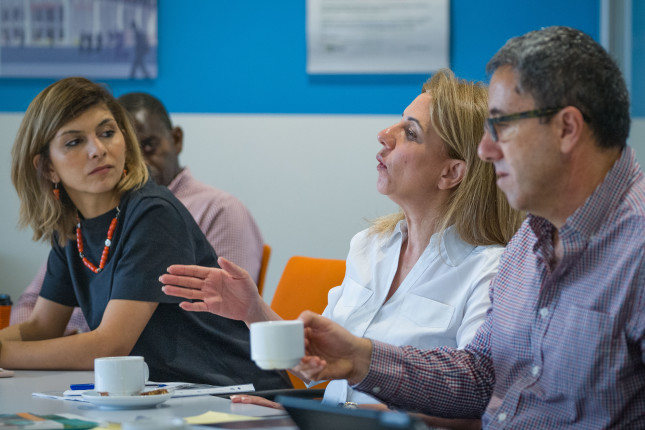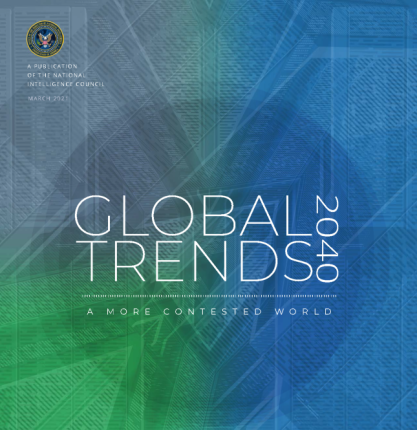Holly Sarkissian
Holly Sarkissian was a Staff Intern for the Environmental Change and Security Program in 2021.
-
Fully Protecting the World’s Land, Water, and People Through 30 by 30
›To prevent mass extinctions and bolster resilience to climate change, scientists warn that we must protect at least 30 percent of our oceans, lands, rivers, lakes, and wetlands. To safeguard global biodiversity, the “30 by 30” initiative aims to protect 30 percent of land and oceans by 2030. However, commitments on paper are not enough. World leaders must act strategically in implementation to ensure the most crucial ecosystems are protected. Implementation policies for 30 by 30 must also avoid unintentional harm such as exacerbating conflict over resources, excluding Indigenous and local groups from land management, and neglecting environmental protections for the remaining 70 percent of land and oceans.
-
The Water Defenders: How Ordinary People Saved a Country from Corporate Greed: A Conversation with Co-authors Robin Broad and John Cavanagh
›
“Many people have watched fights between communities and big corporations around the world. The corporations usually win so those are the Goliath. The Davids usually lose,” says John Cavanagh, co-author of The Water Defenders: How Ordinary People Saved a Country from Corporate Greed. In this week’s episode of Friday Podcasts, Cavanagh and co-author Robin Broad recount how local activists mobilized a global coalition of religious leaders, labor unions, and environmental activists to block an international corporation from opening a gold mine that threatened El Salvador’s fragile water supply.
-
The Top 5 Posts of July 2021
›
Feeding all the fish grown in aquaculture remains a challenge in China, the U.S. and elsewhere. Aquaculture currently uses 75 percent of global fish oil supplies and researchers estimate that the demand for forage fish will exceed the ocean’s supply by 2037. In this month’s top post, Karen Mancl discusses the need for policy interventions to halt the overharvesting of oceans for fish feed and to ramp up the use of alternative fish feeds such as insects and algae.
-
Untapped Potential: Women Leadership is Key to Effective Water Diplomacy in the Middle East
›
“We see women playing a critical role in water resource management and decision-making at the family level as well as the community level. However, they’re very often absent from high level water-related negotiations and agreements,” said Merissa Khurma, director of the Wilson Center’s Middle East Program (MEP), introducing a Wilson Center event on the inclusion of women in water leadership and diplomacy in the Middle East, co-hosted by the Environmental Change and Security Program, MEP, and EcoPeace Middle East.
-
John Scanlon on the Case for Criminalizing Wildlife Trafficking under International Law
› “The world is still feeling the full brunt of the COVID-19 pandemic which most likely had its origins in a wild animal,” says John Scanlon AO, Former Secretary-General of CITES (the Convention on International Trade in Endangered Species of Wild Fauna and Flora) and Chair of the Global Initiative to End Wildlife Crime, in this week’s Friday Podcast. Scanlon spoke at a recent Wilson Center event on the connections between wildlife crime, human health, and security.
“The world is still feeling the full brunt of the COVID-19 pandemic which most likely had its origins in a wild animal,” says John Scanlon AO, Former Secretary-General of CITES (the Convention on International Trade in Endangered Species of Wild Fauna and Flora) and Chair of the Global Initiative to End Wildlife Crime, in this week’s Friday Podcast. Scanlon spoke at a recent Wilson Center event on the connections between wildlife crime, human health, and security.
-
The Top 5 Posts of June 2021
›
In our top post for June, Steve Gale shares 5 consequences out of the National Intelligence Council’s recently released Global Trends report that development actors should be particularly attuned to. In addition to the “long tail” of the COVID-19 pandemic, the report recognizes the environmental consequences of climate change, including unprecedented numbers of wildfires, increased intensity of tropical storms, and sea-level rise. As a result, migration will be more pronounced and require more targeted aid approaches as demographics shift.






 “The world is still feeling the full brunt of the COVID-19 pandemic which most likely had its origins in a wild animal,” says John Scanlon AO, Former Secretary-General of CITES (the Convention on International Trade in Endangered Species of Wild Fauna and Flora) and Chair of the Global Initiative to End Wildlife Crime, in this week’s Friday Podcast. Scanlon spoke at a recent Wilson Center event on the connections between
“The world is still feeling the full brunt of the COVID-19 pandemic which most likely had its origins in a wild animal,” says John Scanlon AO, Former Secretary-General of CITES (the Convention on International Trade in Endangered Species of Wild Fauna and Flora) and Chair of the Global Initiative to End Wildlife Crime, in this week’s Friday Podcast. Scanlon spoke at a recent Wilson Center event on the connections between 


